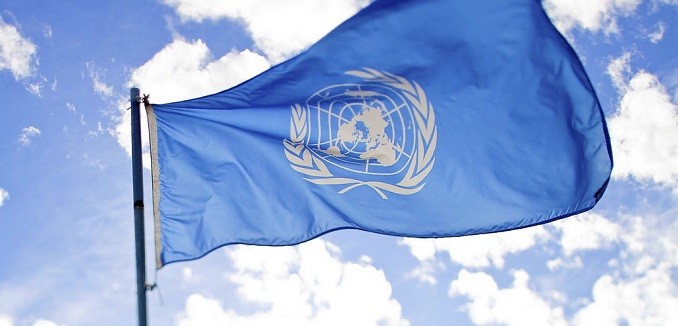The Palestinian Liberation Organization (PLO) on Sunday announced that the group’s central committee had adopted a plan under which the Palestinians would seek to join 60 United Nations bodies and international treaties, per a report by Agence France-Presse (AFP) subsequently cited in both Arabic and Israeli media:
Palestine People’s Party Secretary-General Bassam al-Salhi said that the council “affirms the need for the Palestinian leadership to continue membership of UN agencies and international conventions, under the Palestinian plan that was adopted.”
The move follows the collapse of the already floundering Israeli-Palestinian peace talks, after the signing of a unity pact between Hamas and Fatah on Wednesday, and Israel’s subsequent decision to halt the negotiations.
The moves came a day after Palestinian Authority (PA) President Mahmoud Abbas gave a speech doubling down on a recent decision by his Fatah faction to reconcile with the rival Hamas group, and then offering to listen to Israel in the context of peace talks provided that Jerusalem would offer a raft of concessions beforehand. The speech fell flat.
The Palestinian push to join international institutions – which reemerged in earnest at the beginning of April, with Abbas announcing that Ramallah would seek to ascend to over a dozen multilateral treaties – had quickly been criticized for fundamentally undermining the core gamble of the peace process. Several decades of Israeli-Arab peacemaking had been premised on the notion that Israel could reliably trade fundamentally irreversible tangible concessions, usually but not always land, for theoretically reversible intangible commitments, most often normalization.
Palestinian moves to boost their diplomatic status outside of negotiations with Israel, which violate among other things Olso Accord obligations that Israel secured via territorial concessions spanning decades, were blasted for creating a situation in which those theoretically reversible intangible commitments were in fact pocketed.
Independent of the peace process, the new move will deepen fears of what has been described as a kind of “scorched earth” campaign, under which Palestinian diplomats ascend to and then politicize international institutions, turning them against Israel and in the process endangering their neutrality and credibility.
U.S. lawmakers had expressed exactly such fears when the Palestinians sought and eventually secured an upgrade via the United Nations General Assembly to become a nonmember state. Ramallah had previously gained a seat at the United Nations Educational, Scientific and Cultural Organization (UNESCO) over similar U.S. objections, triggering a congressional backlash that financially crippled UNESCO:
UNESCO is in its “worst ever financial situation” after its biggest contributor the United States froze funding last year, the director general of the United Nations’ cultural agency said on Thursday.
The United Nations Educational Scientific and Cultural Organization was plunged into crisis in October 2011 when Washington, an ally of Israel, cancelled its grant in protest at the body’s decision to grant the Palestinians full membership.
By 2014 – after several sessions in which Israel was subject to lopsided criticism by the body – Palestinian media outlets were openly boasting about how the organization was now focused on pursuing anti-Israel resolutions and investigations.
[Photo: sanjitbakshi / Flickr]




